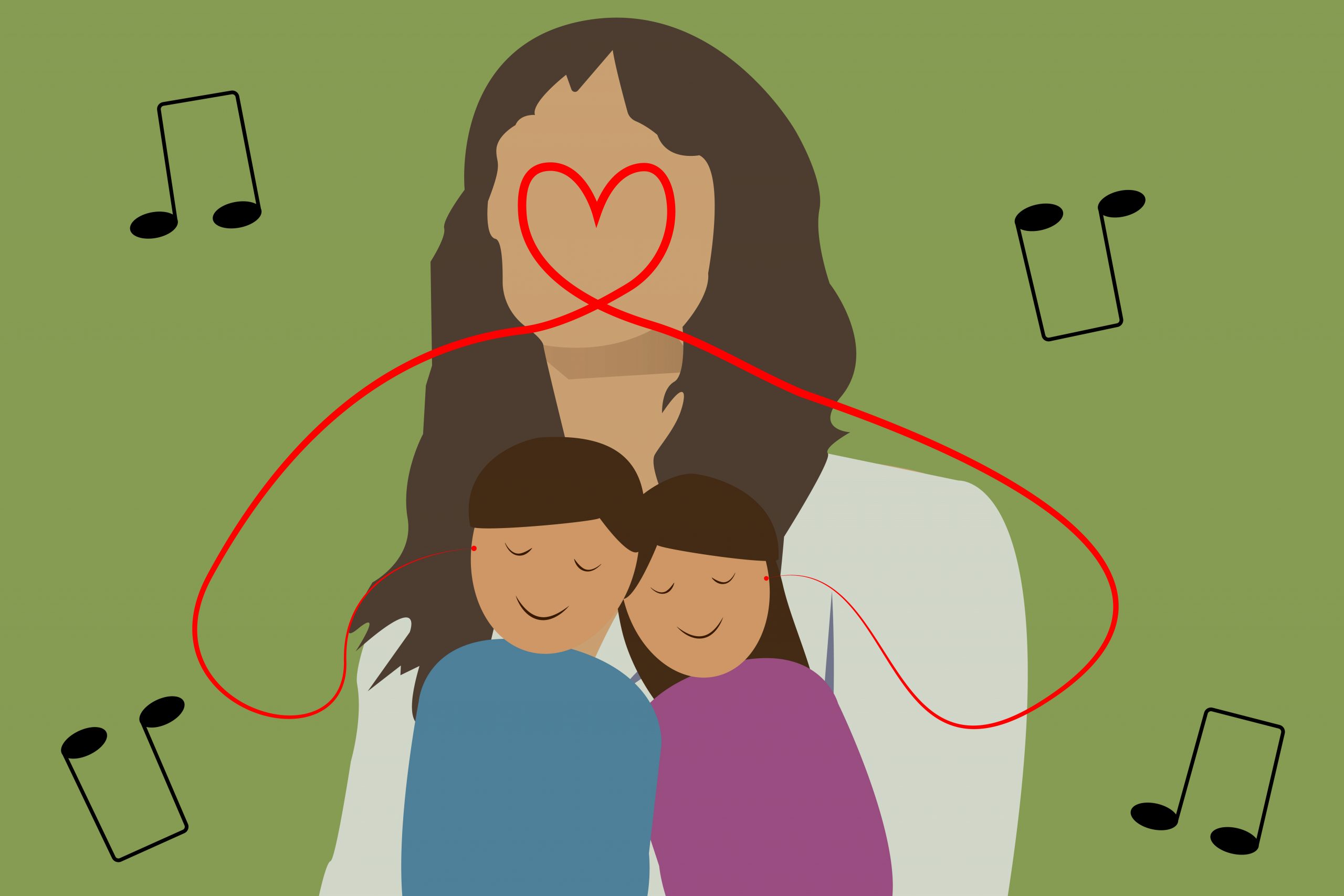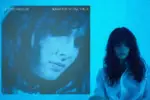From jealousy to heartbreak to hope to love, Julia Michaels truly comes into her own as an artist with her new album “Not in Chronological Order.” With summer on the horizon, love is in the air, but Julia Michaels calls us to explore what it means to be in a relationship and how that impacts who we are. Her album is only 30 minutes long, but the 10 songs on the release don’t hold any less of an impact. In fact, they tell an entire story of romantic emotions through music.
“All Your Exes” is the first song on the “Not in Chronological Order” and tackles what so many heartbreak songs are about: jealousy. The song starts out with heartfelt and sweet musical tones that evoke a sense of romanticism — but when the sound switches to pop-rock, she claims to want to “live in a world where all your exes are dead.” She doesn’t want to be reminded of her boyfriend’s past life with other girls.
In an ironic twist, the song alludes to the beginning of a relationship, deep enough into it that perhaps they’re committed and know they’re into each other, but not close enough to know all that there is to know about a person and their romantic past. To talk about this song is to see Michaels push boundaries as an artist. The music is slightly different from the electro-pop of her previous two EPs, and with this different sound, we see that she’s no longer just a songwriter but an artist too.
“Little Did I Know” is the fourth song on “Not in Chronological Order” that depicts one of the blissful highs that come with being in love. There are whimsical echoing effects, strings and a familiar pop sound, but Michaels’ raspy voice and soulful lyrics take over for this one, with lines like, “I thought love was Shakespearean / More or less a painful experience that you would be the one.”
Michaels has said the song is about a relationship prior to her most recent partner, JP Saxe, who inspired the album and also helped co-write both “Little Did I Know” and “All Your Exes.” She uses this song to help us understand what it means to go through the struggles of previous relationships only to finally come into one that truly feels right and wholesome. Her deep but relatable lyrics resonate deeply in this song.
“Wrapped Around” pays homage to Dua Lipa in this song about leaving a toxic relationship. In a creative twist, she turns the phrase “wrapped around [their] finger” into something different; instead, she sings, “Watch me wrap ‘round somebody else now.” This song speaks to the way you can finally decide to move on from a relationship that’s no longer benefiting you.
She decides that she deserves better and she won’t accept someone who treats her poorly. She highlights the anger and bitterness toward her ex-partner and their treatment of her in this song — although when she speaks of moving on, she speaks to the regret that she hopes they feel once she does. It’s an interesting feeling that always finds a way to coexist in these messy breakups but Michaels portrays it well.
“History” beautifully describes the way you feel when you’re trying to get to know someone. We have all these questions about their past: what they like, who they were, and so on. It pulls out a playful and soft feeling when listening to this song.
The gentle guitar and piano that underly Michaels’ burning questions truly draw people in. The song captures a feeling of wanting to connect intimately with someone because you like them, you think this can go somewhere and you’re excited to see where things can go; at the same time, it’s anxiety-inducing to think about because maybe you won’t connect. Perhaps Michaels and Taylor Swift can talk sometime because their romantic music is so heartfelt.
“Undertone” is reminiscent of Ella Eyre’s song “Gravity” in the most perfect way. Michaels talks about trying to move on after a relationship, but even when she’s with someone new, “you’re always an undertone.” She’s hoping that lingering pieces of her past relationships don’t come with her but I think it speaks to the ways we’re shaped by every person we’re around. Whether it’s friends, family, coworkers or romantic partners, we learn different things about people and ourselves from our relationships.
This song relates back to “All Your Exes” where she says, “I know where you’ve been, what you’ve done / who you loved is a part of who you are.” It would make even more sense to have these songs follow each other but the beauty of this album is that the parts are interchangeable and yet still connected. “Undertone” allows us to reflect on our past relationships and know better for the next time how we want to be treated in a new relationship — what worked, what didn’t, and how in the end, no matter how things finished, you’re still allowed to miss a person and carry parts of them with you in different ways.
“That’s the Kind of Woman” is the final song on the album and in my opinion, it is a culmination of who Michaels is after she goes through this relationship. She sings, “If the me I am, walked out that door, that’s the kind of woman I’d leave me for.” This song goes back to Michaels’ roots in the hard-hitting, raw lyrics that describe her insecurities in detail. Fans of her songs “Issues” and “Body” from her EP “Inner Monologue Part 2” would love this song.
She told Billboard in an interview that after expressing all of the negative emotions depicted on this album, she imagines what she would be like if she were perhaps a better, more “well rounded” version of herself.
“That’s the Kind of Woman” evokes the same feeling; it talks about who she’s grown into and how she got there from her past. All of this heartache and love can lead to something that’s more irreplaceable than any relationship — herself. Michaels has admitted to being the happiest as herself in her current relationship and I think as the final song on the album, “That’s the Kind of Woman” truly gives us hope to know that in the end, something good can come out of the bad. What you need in order to truly be the person you want to be, with or without a partner, is yourself and self-love and Michaels talks about this here.
In Conclusion
Rolling Stone argues that Julia Michaels doesn’t come into a particular sound of her own as an artist on “Not in Chronological Order,” especially because a few songs on the short tracklist resemble so many others. However, the talent and creativity lie not necessarily in Michaels’ sound but in her lyrics. She explores what it means to tell a story with different sounds and styles and she knows how to speak to a popular audience.
“Not in Chronological Order” takes you on a journey that typically would build from the beginning but with the songs so randomized, it truly makes the album something you can take apart and put back together. When you’re able to scramble the pieces the way you need to, it lets the music speak to you in so many different ways that work for you.
Michaels through and through is a songwriter, and her strengths are what make this album the masterpiece that it is. Maybe she needs more time to develop her individual sound but as she reflects on her past relationships, toxic tendencies, traits that truly ruin relationships — jealousy, possessiveness, distrust — she’s also able to portray the angsty, inspiring, hopeful and joyful emotions that tangle with the fear of beginning to truly care for someone. Michaels analyzes what all of this means in the end for herself and for love through this album.

















